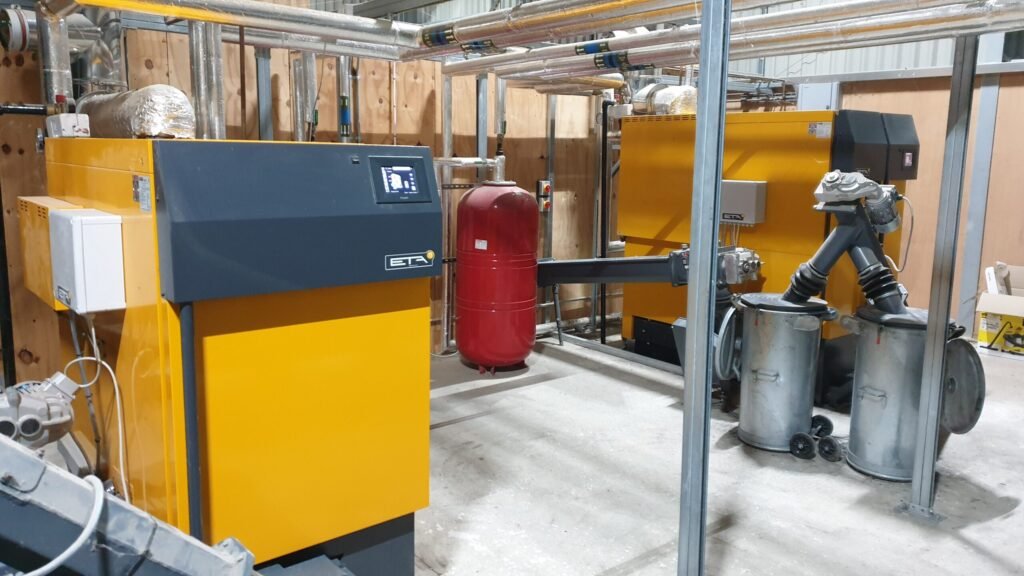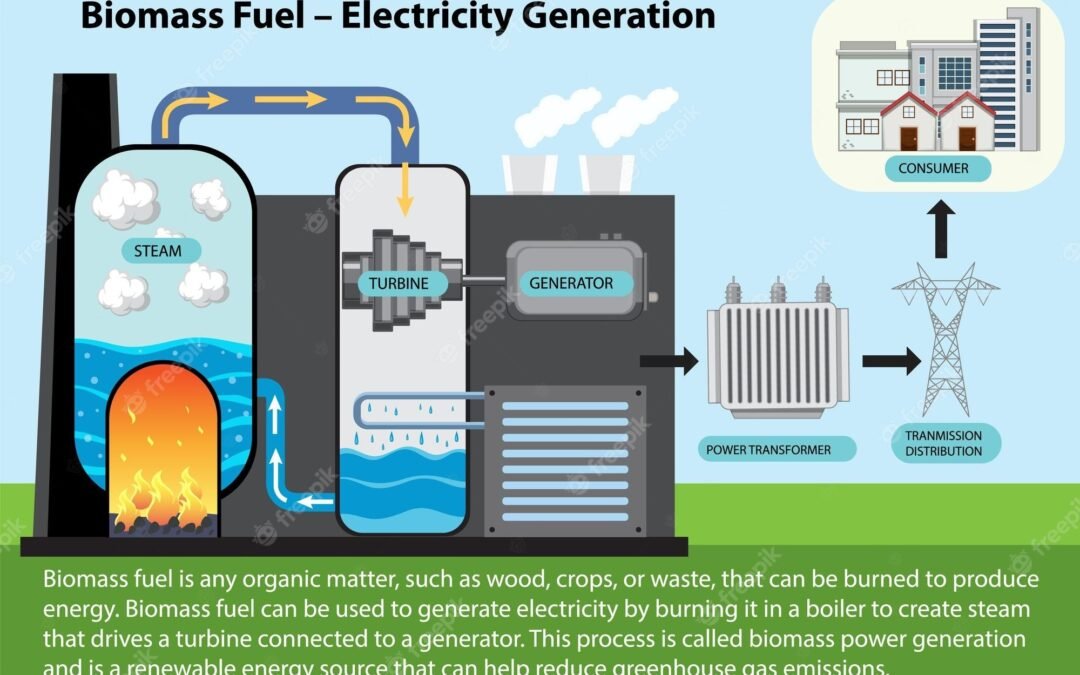Everything You Need to Know about Installation Costs, Life Expectancy, Payback Time, Maintenance and Servicing Costs of Biomass Boiler.
Biomass boilers are an eco-friendly alternative to traditional heating systems, as they use renewable energy sources such as wood pellets, chips, or logs to generate heat. These boilers are becoming increasingly popular due to their low carbon footprint and the potential cost savings they offer in the long run. In this comprehensive guide, we will delve into the various aspects of biomass boilers, including installation costs, life expectancy, payback time, maintenance, and servicing costs.
Understanding the cost of installing a biomass boiler
The cost of installing a biomass boiler can vary depending on several factors. Firstly, the size of the boiler will influence the installation cost, as larger boilers require more complex systems. Additionally, the type of fuel used and the availability of biomass fuel in your area can affect the installation cost. It is essential to consider these factors when estimating the total cost of installing a biomass boiler.
To give you a rough idea, the average cost of installing a domestic biomass boiler ranges from $10,000 to $20,000. However, it is crucial to note that this is just an estimate, and the actual cost can vary based on your specific requirements and location. To get an accurate quote, it is recommended to consult with a professional installer who can assess your needs and provide a detailed cost breakdown.
The life expectancy of a biomass boiler
The life expectancy of a biomass boiler largely depends on the quality of the boiler and the regularity of maintenance. On average, a well-maintained biomass boiler can last anywhere between 15 to 20 years. However, some high-quality boilers have been known to last even longer with proper care.
To ensure the longevity of your biomass boiler, it is essential to invest in a reputable brand and follow the manufacturer’s guidelines for maintenance. Regular cleaning and inspection of the boiler’s components, such as the heat exchanger and flue, will help prevent any build up of ash or debris that could potentially damage the system. By adhering to a strict maintenance schedule, you can maximize the lifespan of your biomass boiler.
Calculating the payback time for a domestic biomass boiler
One of the significant advantages of biomass boilers is the potential for cost savings over time. The payback time for a domestic biomass boiler is the period it takes for the energy cost savings to cover the initial installation cost. Several factors can influence the payback time, such as the efficiency of the boiler, the cost of fuel, and the current energy prices in your area.
To calculate the payback time, you need to consider the annual energy savings from using a biomass boiler compared to your previous heating system. Divide the installation cost by the annual energy savings to determine the number of years it will take to recoup your investment. On average, the payback time for a domestic biomass boiler ranges from 5 to 10 years, depending on the aforementioned factors.
The importance of regular biomass boilers maintenance
Regular maintenance is crucial to ensure the optimal performance and efficiency of your biomass boiler. Neglecting maintenance can result in reduced efficiency, increased fuel consumption, and potential breakdowns. It is recommended to establish a routine maintenance schedule and adhere to it diligently.
Maintenance tasks for biomass boilers include cleaning the combustion chamber, inspecting and cleaning the flue system, checking the fuel feed system, and testing the boiler’s safety controls. Additionally, regular ash removal and cleaning of the heat exchanger will help maintain the boiler’s efficiency. By investing time and effort into proper maintenance, you can prolong the life of your biomass boiler and avoid costly repairs.
How often should a biomass boiler be serviced?
To ensure the continued reliability and efficiency of your biomass boiler, it is crucial to have it serviced regularly. The frequency of servicing depends on various factors, including the manufacturer’s recommendations, the age of the boiler, and its level of usage. In general, it is advisable to have a biomass boiler serviced at least once a year.
During a service, a qualified engineer will inspect and clean the boiler, check for any signs of wear or damage, and test the safety features. They will also assess the overall performance and make any necessary adjustments or repairs. Regular servicing will not only keep your biomass boiler running smoothly but also help identify any potential issues before they escalate into major problems.
The cost of servicing a biomass boiler
The cost of servicing a biomass boiler can vary depending on the region and the complexity of the system. On average, you can expect to pay between $150 and $300 for a standard annual service. However, it is essential to note that additional costs may apply if any repairs or replacements are required.
While servicing costs may seem like an additional expense, they are a worthwhile investment in the long run. Regular servicing can help improve the efficiency of your biomass boiler, reduce fuel consumption, and prevent costly breakdowns. It is always recommended to hire a qualified engineer with experience in servicing biomass boilers to ensure the job is done correctly.
Finding the right engineer for servicing your biomass boiler
When it comes to servicing your biomass boiler, it is crucial to find a qualified engineer who specializes in this type of heating system. Look for engineers who are registered with relevant industry bodies and have experience working with biomass boilers. A reputable engineer will have the necessary knowledge and skills to service your boiler effectively.
To find the right engineer, you can start by asking for recommendations from friends, family, or colleagues who have biomass boilers. Alternatively, you can search online directories or contact local heating and plumbing companies for referrals. When selecting an engineer, be sure to check their qualifications, insurance coverage, and customer reviews to ensure you are making an informed decision.
Tips for maintaining the efficiency of your biomass boiler
In addition to regular servicing, there are several steps you can take to maintain the efficiency of your biomass boiler:
- Check fuel quality: Ensure you are using high-quality biomass fuel to maximize efficiency and minimize emissions. Poor-quality fuel can lead to increased ash production and reduced boiler performance.
- Monitor fuel storage: Store your biomass fuel in a clean, dry, and well-ventilated area to prevent moisture absorption and degradation. Moisture in the fuel can lead to combustion issues and reduced efficiency.
- Clean heat exchanger regularly: A clean heat exchanger allows for efficient transfer of heat from the combustion process. Regularly clean the heat exchanger to remove any ash or debris buildup.
- Insulate pipes and tanks: Proper insulation of pipes and tanks connected to your biomass boiler can help reduce heat loss and improve overall efficiency.
By following these tips and incorporating them into your regular maintenance routine, you can ensure that your biomass boiler operates at its optimal level of efficiency.
Conclusion
Biomass boilers offer a sustainable and cost-effective heating solution for both residential and commercial properties. By understanding the installation costs, life expectancy, payback time, and maintenance requirements of biomass boilers, you can make an informed decision about whether this heating system is suitable for your needs. Remember to prioritize regular servicing and maintenance to maximize the longevity and efficiency of your biomass boiler. With proper care, your biomass boiler will provide reliable heating for many years to come.
If you are considering installing a biomass boiler or need servicing for an existing one, contact our team of qualified engineers today for professional assistance.



